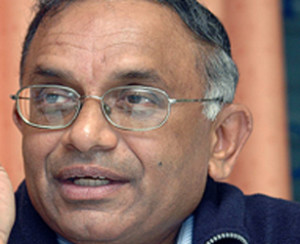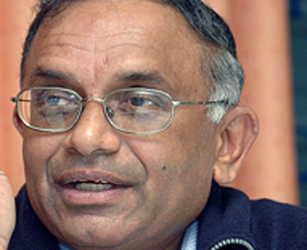 |
| Dr. Jayampathy: This is J.R. creation |
“Every citizen of this country is entitled to certain judicial remedies to their issues. But in terms of the J. R. Jayewardene administration-initiated Parliamentary Standing Orders and the Constitution we have today, there are 23 very unfortunate persons in this country currently. They are the 11 Supreme Court judges and the 12 Court of Appeal judges. These 23 unfortunate people have no judicial remedies,” well known constitutional lawyer and senior LSSPer Dr. Jayampathy Wickremeratne PC said.
Speaking to The Island in a wide-ranging interview, on the impeachment process against the Chief Justice and linked governance issues, Wickremeratne asked, “how can any right- thinking person take a decision on the basis of an inquiry held by a non-judicial body? This is unconstitutional.”
“A tenant cultivator who is evicted from the land he tills is entitled to complain to the Commissioner of Agrarian Services and then go to the High Court and Supreme Court. An aggrieved workman can go to the Labour Tribunal and from there to the High Court and the Supreme Court. A public servant can go to the Public Service Commission and from there to the Administrative Appeals Tribunal and to the Court of Appeal or the Supreme Court. A Member of Parliament who is expelled from his party and is liable to lose his membership of Parliament is entitled to go before the Supreme Court,” he said.
“When a President is impeached on a motion to that effect being passed by a two-thirds majority in Parliament, the Parliamentarians themselves do not hold the trial. The matter is then referred to the Supreme Court and if only the Supreme Court finds the President guilty would the matter come back to Parliament for a formal impeachment. So, every citizen in this country is entitled to certain judicial remedies, but the Supreme Court and the Court of Appeal judges cannot avail of such remedies”, Wickremeratne explained.
By Lynn Ockersz
IS
–
